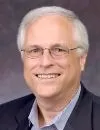Editor's Note: This profile is part of a series that features the stories of graduates whose outstanding journeys have culminated in a UMGC degree.
Iselda Wagner, better known as Izzy, has a bucket list.
As she graduates this month with a Master of Science in Digital Forensics and Cyber Investigation from University of Maryland Global Campus (UMGC), she can check off one of the major items on the list.
Even as she does that, however, she’ll be adding another: a doctorate degree.
Wagner’s latest achievement hasn’t come easily. She has dealt with major health problems that forced her to travel back and forth between Colorado and Texas, wearing a heart monitor, so she could get proper medical care.
“There were many times I almost withdrew from the program, but I persevered, and I am proud that I did,” she said. “My mantra was by Maya Angelou: ‘You may encounter many defeats, but you must not be defeated. In fact, it may be necessary to encounter the defeats, so you can know who you are.’”
Getting the master’s degree was a goal Wagner set for herself 10 years ago. Three children later, she is happy to check it off her list.
Born and raised in Dallas, Wagner was home schooled. A single mom at the age of 20, she knew she would struggle to meet her goal of a college education. She joined the Army for the education benefits and enlisted in the Texas National Guard. That led to a full-time job.
While living in Dallas, Wagner earned undergraduate degrees in applied science and criminal justice from two different schools locally. She became a police officer and met her husband, also a Texas National guardsman. Her first daughter is 21 and grown. As the next three children came along, she became a stay-at-home mom.
When the COVID-19 pandemic hit, she decided it was time to pursue her master’s degree, even as she was homeschooling her children.
“I said, ‘As if this isn't enough, I'm going to take on more and continue with my bucket list,’” she explained.
UMGC made sense for her, she said, because of her veteran status and its links to the Department of Defense and other government agencies that do the type of work that interested her.
“I would like to stay in community service type of work to use digital forensics to combat human trafficking, something that would keep me in law enforcement, especially to help women victims of crime,” she said.
Just as Wagner started her UMGC program, she was diagnosed with super ventricular tachycardia, a rare cardiology condition that caused her to lose consciousness and her heart rate would “go haywire.” Every six months, she had to travel back and forth from her home in Colorado to her doctors in Dallas as they studied what may have caused her condition.
“I'm better,” she said. “I might have incidents here and there, but I just make sure I always carry my heart medicine, and I always have a mobile EKG with me so that if an incident occurs, I can apply it and whatever hospital I'm near will at least be able to see what's happening.”
UMGC’s online program gave her the flexibility to manage her unexpected health challenges, she said.
“I homeschool my kids during the day, and then once we're done with their school, I would hit my books, doing my schoolwork often late into the night, sometimes two or three in the morning,” she said.
The professors were phenomenal, she said.
“I felt extremely honored and blessed that I was able to study under some of the professors that have worked for the Department of Defense and have been extremely beneficial to the advancements that our government has made in cybersecurity,” she said.
Where Wagner goes to pursue her doctorate is still up in the air. She is looking for a university where she can undertake a research project on the disparities between minority women—who are overwhelmingly the victims of violent crimes—and the laws that seem to protect male perpetrators.
“I want to know who’s voting to put in place these laws that are protecting offenders,” she explained. “If every woman voted for laws that would protect us, it should make a change. I don't know how I'm going to do it, except I have a passion for it. I've always started into something with little or no experience, and I will gain the knowledge I need.”

Share This